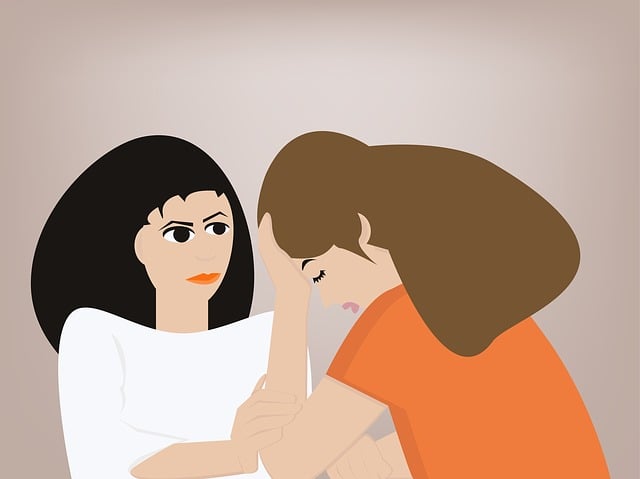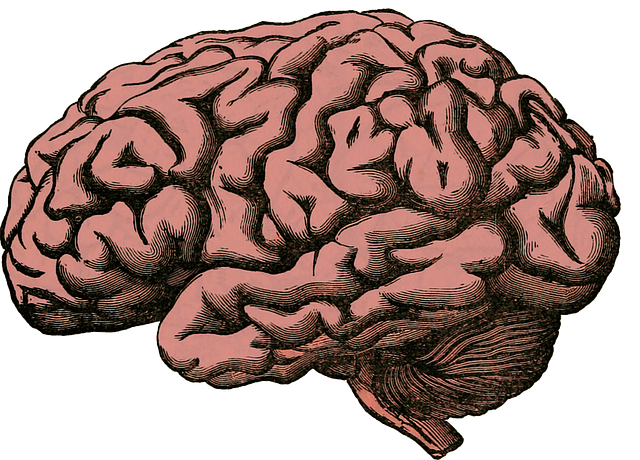Understanding mental health diagnoses is crucial in assisting abuse survivors, with trauma from domestic violence, sexual assault, or child abuse often leading to PTSD, depression, anxiety, and substance use disorders. Healthcare providers play a vital role by offering sensitive care through cultural competency training and stress management workshops. Specialized therapy approaches like TF-CBT, combined with self-care practices such as mindfulness and journaling, empower individuals in their recovery. Building a robust support network, including family, friends, and peers, is essential for healing and preventing burnout. Self-care strategies, along with support groups and stress management workshops, holistically improve the quality of life for Therapy for Abuse Survivors.
Mental illness diagnosis and treatment navigation can be challenging, especially for abuse survivors. This article provides a comprehensive guide to understanding mental health diagnoses specific to this group, navigating diverse therapy approaches tailored to their unique needs, building supportive networks, and adopting self-care strategies for continuous wellbeing. Discover practical steps towards healing with therapy for abuse survivors, empowering individuals on their journey toward recovery.
- Understanding Mental Health Diagnoses for Abuse Survivors
- Navigating Treatment Options: Therapy Approaches
- Building a Supportive Network for Recovery
- Self-Care Strategies for Continuous Wellbeing
Understanding Mental Health Diagnoses for Abuse Survivors

Understanding mental health diagnoses is crucial when assisting survivors of abuse. Many individuals who have experienced trauma, such as domestic violence, sexual assault, or child abuse, may exhibit symptoms that align with various mental health conditions. These can include post-traumatic stress disorder (PTSD), depression, anxiety disorders, and substance use disorders, among others. Recognizing these potential diagnoses is essential for effective therapy for abuse survivors. The process involves a comprehensive risk assessment for mental health professionals, ensuring they are equipped to handle the unique challenges faced by this population.
Healthcare provider cultural competency training plays a vital role in this navigation assistance. It equips professionals with the knowledge and skills to understand the impact of trauma on an individual’s mental health and to deliver culturally sensitive care. Additionally, stress management workshops can help survivors develop coping mechanisms, which are essential for their long-term well-being and recovery journey. By integrating these strategies, organizations can enhance their services and support networks for abuse survivors seeking therapy.
Navigating Treatment Options: Therapy Approaches

Navigating treatment options is a crucial step for anyone seeking help for mental illness, especially for abuse survivors who may face unique challenges. Therapy approaches play a pivotal role in this journey, offering specialized support tailored to address complex emotional trauma. For instance, trauma-focused cognitive behavioural therapy (TF-CBT) has proven effective in helping individuals process and overcome the effects of abuse, fostering positive thinking and emotional healing processes.
Self-care practices are also integral to complementing these therapy approaches. Techniques such as mindfulness meditation, journaling, and engaging in creative outlets can aid in stress reduction, building resilience, and strengthening coping mechanisms. Together with professional therapy for abuse survivors, these self-care strategies contribute to a holistic approach that supports mental wellness and empowers individuals on their path to emotional recovery.
Building a Supportive Network for Recovery

Building a robust support network is a cornerstone for individuals navigating mental illness and recovery, especially those who have experienced trauma or abuse. Therapy for abuse survivors often involves creating safe spaces where they can process their past while fostering healthy relationships that promote healing. This network includes understanding and supportive family members, friends, or peers who provide emotional backing, encourage self-care practices, and help prevent burnout—all essential aspects of recovery.
By surrounding themselves with like-minded individuals who prioritize their well-being, survivors can enhance their inner strength development. This support system encourages open communication about mental health struggles and promotes access to resources such as counseling services, support groups, or community programs tailored to their specific needs. Ultimately, a strong support network enables survivors to build resilience, cope with challenges effectively, and foster a sense of belonging and purpose in their recovery journey.
Self-Care Strategies for Continuous Wellbeing

For individuals navigating mental illness, particularly those who have experienced trauma and abuse, implementing self-care strategies is an essential component of their journey to recovery. Therapy for abuse survivors often emphasizes the importance of adopting healthy coping mechanisms as a means to manage symptoms and promote resilience. Self-care looks different for everyone, but it’s a powerful tool in prioritizing one’s mental wellbeing.
Integrating Mind Over Matter principles can empower individuals to take charge of their mental health. This involves practicing mindfulness techniques, engaging in regular physical activity, maintaining a balanced diet, and establishing consistent sleep routines. Additionally, joining support groups or attending Stress Management Workshops Organization sessions can provide valuable tools for stress management, fostering a sense of community and shared understanding. By combining these strategies, individuals can create a holistic approach to their mental health, enhancing their overall quality of life.
Mental illness diagnosis and treatment can be particularly challenging for abuse survivors. By understanding specific mental health diagnoses, exploring tailored therapy approaches like those offered in trauma-focused cognitive behavioral therapy (TF-CBT), and building a robust support network, individuals can embark on a path to recovery. Self-care strategies are also crucial for maintaining continuous wellbeing. For those seeking help, there is hope. With the right resources and support, healing from abuse is achievable, enabling folks to reclaim their lives and thrive. Consider exploring therapy for abuse survivors as a pivotal step towards a brighter future.











